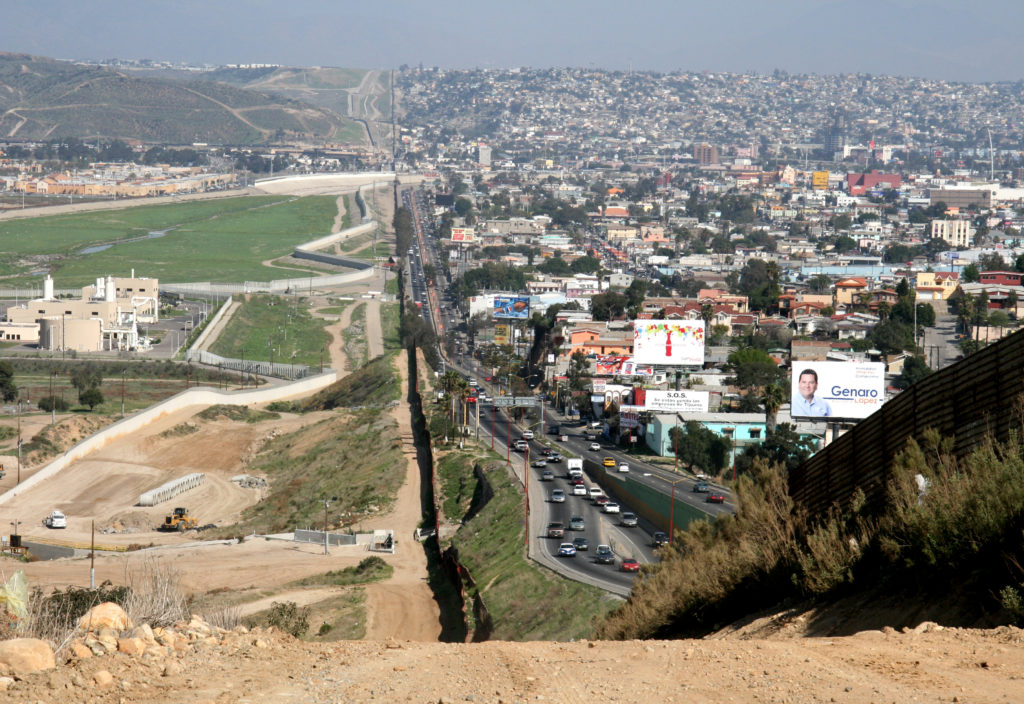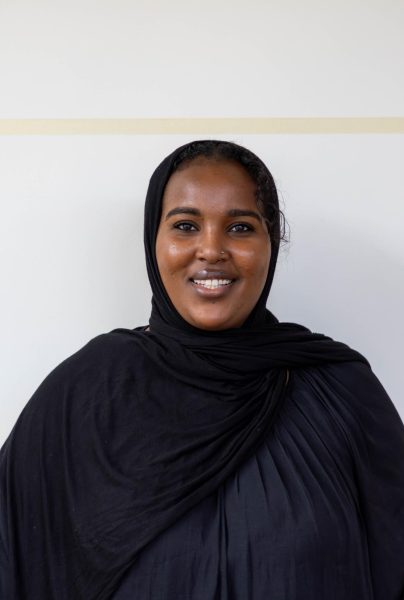Column: U.S. must respect immigrant rights
A small fence separates densely populated Tijuana, Mexico, right, from the United States in the Border Patrols San Diego Sector. Construction is underway to extend a secondary fence over the top of this hill and eventually to the Pacific Ocean.
November 29, 2018
When history looks back on Nov. 25, nobody will remember why the United States justified an attack on unarmed civilians. It will remember Maria Lila Meza Castro dragging her twin daughters away from tear gas, one barefoot, the other tripping over her mother’s dirt-covered shoes. The girls have nothing but t-shirts and diapers to cover their small bodies, but their existence was threatening enough to provoke an attack by U.S soldiers.
No one will remember that the migrants intended to peacefully march toward Tijuana, Mexico. No one will remember the backlash criticizing authorities for overreacting. But history will remember the United States characterized hundreds of human beings as criminals and stooped low enough to attack unarmed men, women and children looking for the American dream that brought the founding ancestors of this country here so long ago.
I am a proud Mexican-American, the daughter of an immigrant mother who came to the United States for the higher education it had to offer, that I now also enjoy. But I am very in touch with my heritage and the neighboring country my mom still calls home. Even as I would say it serves as another home, I understand the privilege I have to live in America, the dangers of the country my mother left behind. I also understand the negative stereotypes that infiltrated my childhood and served as factors in discrimination my mother, my sisters and I have faced all of our lives.
Closing the San Ysidro Port of Entry was like closing the door to a place I hold dear and holding the people I love on the other side captive. It meant that I wasn’t sure if it would be open in time for my abuelos to cross over and make their flight to join us for Christmas. It meant shutting the doors on my abuela, who may forget what day it is or how to get to her room because of her dementia, but never ceases to call America her home. That, she remembers.
Nov. 25 will always be the day Americans were the cause of images, now ingrained in our history, of choking toddlers and crying parents, of impoverished migrants clinging to another and the clothes on their back against a blockade of soldiers.
Deliberately shutting the border to slow the process of legal asylum cases was another cruelty with no more reason to justify it than given to lock children in cages and care so little for their well-being, separate them from the people who brought them into the world with no process in place to ensure reunification.
By definition, America has kidnapped “a record 14,030 immigrant children in shelters across the country as of Nov. 15, including more than 5,600 in Texas, according to new federal and state statistics” released on Nov. 21.
We cannot ignore morality, compassion, empathy and safety out of partisan disagreement and discriminatory ideologies.
Politics aside, it seems we have forgotten that their blood bleeds as red as our own, as red as the blood shed for the stripes on the American flag we hold so dear. Underneath physical makeup, there is no variation in how they are structured anatomically that differentiates them as humans like me and you.
Moreover, their tears are as salty as our own — but we are at fault for the tears we see running down their faces in photo after photo of the chaos that unfolded at the beginning of this week.
This country may refuse to acknowledge the racist history that has paved the path for these unacceptable courses of action, but perhaps it needs a reminder of how human rights have been defined universally following a turbulent time in which they also, were ignored.
The Universal Declaration of Human Rights was proclaimed on Dec. 10, 1948. In its preamble, it stated: “Whereas recognition of the inherent dignity and of the equal and inalienable rights of all members of the human family is the foundation of freedom, justice and peace in the world, Whereas disregard and contempt for human rights have resulted in barbarous acts which have outraged the conscience of mankind…”
Human rights, in short, are inherent to all human beings. As the United Nations summarizes, they are rights endowed upon each human life “regardless of race, sex, nationality, ethnicity, language, religion, or any other status… Everyone is entitled to these rights, without discrimination.”
Americans are guilty of disregarding human dignity. That shame can only be wiped clean by stepping up, speaking out, and changing the political framework that has allowed those from both sides of the aisle to yell past one another so hateful policies can be enacted against the interests of people like me. And my abuela, who still struggles to study for her citizenship test, but calls this country her own.


















